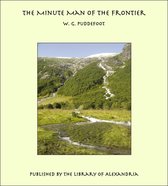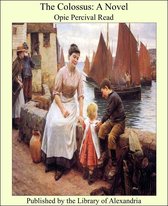The Lay of the Nibelung Men Ebook Tooltip Ebooks kunnen worden gelezen op uw computer en op daarvoor geschikte e-readers.
Afbeeldingen
Artikel vergelijken
Samenvatting
If we accept as our definition of an Epic: (a) A long poem, (b) of an interest not less than national, describing (c) in noble language (d) a series of naturally and organically connected actions (e) of heroic actors, we shall find that, while we must deny the name to some so-called epics, we have to thank the spirit, the imagination, the genius, of the Middle Ages for two great epics. If some critics are inclined to place these on a lower plane, for the alleged reason that the language is lacking in nobility, we may reply that it is a rash literary judgment which appraises the language and style of a far-off time by the standards either of a later civilization and culture, or by those of a quite different race, as of Greece. That is entitled to be called noble language which stirred with heroic impulses, and lifted above themselves, the hearers to whom it was addressed, and this great essential was, we know, amply fulfilled by the Chanson de Roland and the Nibelungenlied. These are both Primitive Epics, as distinguished from the epics of the study. They are National Epics, in the same sense in which the Iliad is, and in a sense in which the Aeneidis not one. By a strange coincidence, the great national epics of the world are unfathered. Of the authorship of the epics of the study, as of Virgil, Milton, Tasso, in which the imagination of a poet bodied forth the life of a long-past age, the scenes of a far-off world, there has never been the shadow of a doubt; but those which paint in everlasting colours the life, the stir of action, the thrill of passion, of an age in which the poet lived and moved and had his being, these songs which pulsate with the very life-blood of the past—when we ask, “Who was the singer?” there comes back only a muffled voice from behind a veil. In India, in France, in Germany, stand thrones waiting for ever empty of the kings of song, and in Greece upon the most imperial of all sits only a featureless shadow, to whose very name is denied by some the attribute of personality. For this obscurity of authorship there is, in the case of the Nibelungenlied, more reason than with the other epics. What is conjectural with respect to the Iliad and the Chanson, is indubitable with respect to the Lied, viz. that both in its origin and in its construction it was composite, that the elements of which it is a union are in date, perhaps in place of origin, widely remote from each other. The Saga of the Niblungs, of which the Nibelungenlied is the finished poetical development, is a union of mythical and historical elements. The Mythical Element, The groundwork of this is the Saga of Siegfried, or Sigurd, as he is named in the Northern versions of the myth. In the old heroic age of the Teuton tribes, perhaps during the period of the Migrations of the Peoples, in the 5th, 6th and 7th centuries, there took shape this legend of a demigod hero. The supernatural pervades the whole atmosphere of this primitive form of the myth. The Gods still walk the earth, the hero is descended from a God, he woos a cloud-maiden, there is something more than earthly in his sword, in his horse, in the glance of his eyes. But as the Germanic tribes to whom this myth was a common inheritance broke up and wandered far apart, it came to pass that it was just with those who remained in the ancient home, the birth-land of the myth, that it became most modified, and that its supernatural elements were removed or toned down, as the result of admixture with more civilized peoples, and, still more, of the acceptance of Christianity by the Germans themselves. Christian teachers were too grimly in earnest to tolerate poems which assumed the existence of heathen deities, and glorified non-Christian virtues. Hence it came to pass that the tribes of Teutonic origin which longest preserved the original form of the myth were those which wandered farthest from the old home-land, and which were the last to abandon the old faith.
Productspecificaties
Inhoud
- Taal
- en
- Bindwijze
- E-book
- Oorspronkelijke releasedatum
- 24 februari 2021
- Ebook Formaat
- Adobe ePub
Betrokkenen
- Hoofdauteur
- Anonymous
- Hoofduitgeverij
- Library Of Alexandria
Lees mogelijkheden
- Lees dit ebook op
- Android (smartphone en tablet) | Kobo e-reader | Desktop (Mac en Windows) | iOS (smartphone en tablet) | Windows (smartphone en tablet)
Overige kenmerken
- Studieboek
- Nee
EAN
- EAN
- 9781465629258
Je vindt dit artikel in
- Categorieën
- Taal
- Engels
- Boek, ebook of luisterboek?
- Ebook
- Beschikbaar in Kobo Plus
- Beschikbaar in Kobo Plus
- Beschikbaarheid
- Leverbaar
Kies gewenste uitvoering
Prijsinformatie en bestellen
De prijs van dit product is 4 euro en 99 cent.- E-book is direct beschikbaar na aankoop
- E-books lezen is voordelig
- Dag en nacht klantenservice
- Veilig betalen
Rapporteer dit artikel
Je wilt melding doen van illegale inhoud over dit artikel:
- Ik wil melding doen als klant
- Ik wil melding doen als autoriteit of trusted flagger
- Ik wil melding doen als partner
- Ik wil melding doen als merkhouder
Geen klant, autoriteit, trusted flagger, merkhouder of partner? Gebruik dan onderstaande link om melding te doen.








